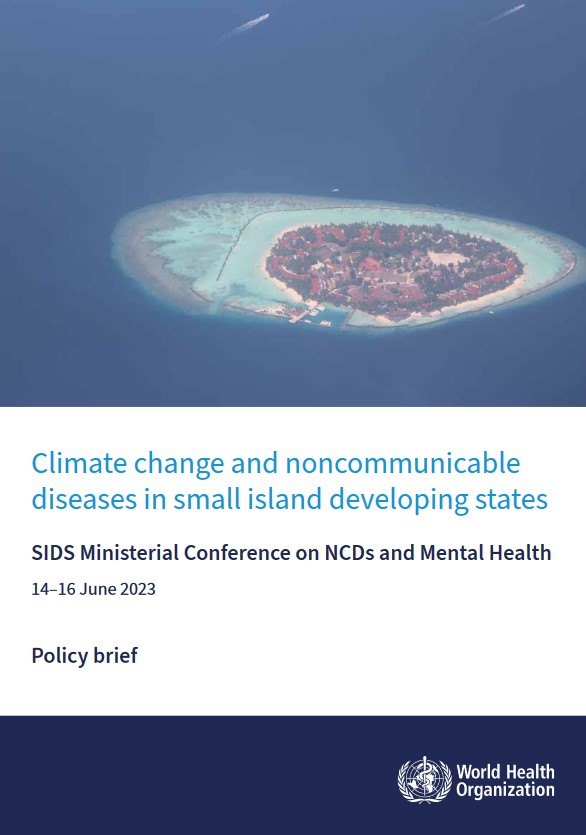Secretariat of the WHO Framework Convention on Tobacco Control & its Protocols
The Global Tobacco Control Funding Gap
Briefs & Fact Sheets
07 May 2023
16 Jun 2023

Small island developing states (SIDS) have made minimal contributions to global emissions of greenhouse gases but are among the countries hardest hit by climate change and natural disasters. Most SIDS are already experiencing severe health effects from climate change, with an increasing incidence of infectious diseases such as malaria, dengue fever, diarrhoea and Zika virus disease. There is increasing strong evidence for a relation between increased morbidity and mortality from noncommunicable diseases (NCDs) and extreme weather events, including heat waves, and also increasingly unhealthy diets and food and water insecurity. Climate change also poses serious risks to mental health. SIDS are disproportionately represented among the countries with the highest estimated risk of dying prematurely from any of the four main NCDs, cardiovascular diseases, cancer, diabetes, or chronic respiratory diseases. Eight of the 15 countries in the world with over 30% risk of premature death from NCDs in 2019 were SIDS.